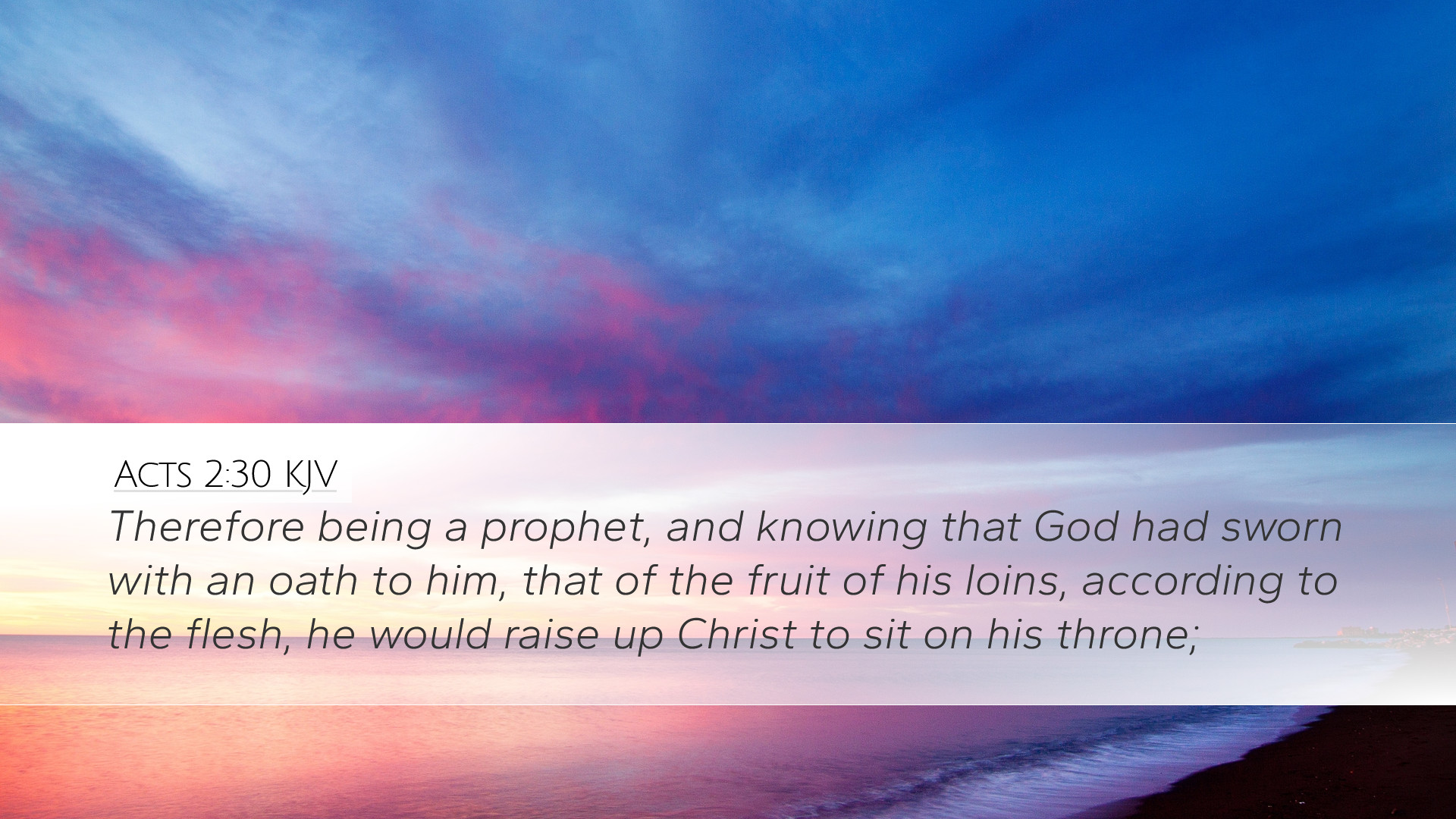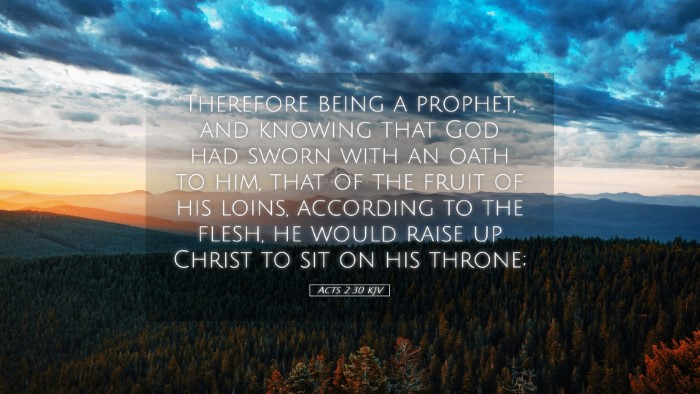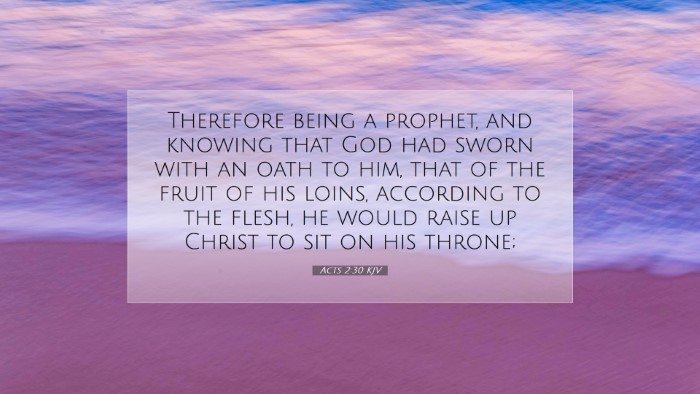Commentary on Acts 2:30
Acts 2:30 states, "Therefore being a prophet, and knowing that God had sworn with an oath to him, that of the fruit of his loins, according to the flesh, he would raise up Christ to sit on his throne." This passage, delivered by Peter during his Pentecost sermon, highlights the significance of David's lineage in relation to Jesus Christ. Below is a detailed commentary based on public domain sources, aiming to provide a comprehensive understanding for pastors, students, theologians, and Bible scholars.
Overview and Context
Peter's sermon in Acts 2 is a pivotal moment in Christian history, marking the birth of the Church. He cites Old Testament prophecies to underscore the fulfillment of Scripture in Jesus. Acts 2:30 plays a critical role as it connects David, a revered king, with God's promise and the messianic expectations surrounding Christ.
Insights from Matthew Henry
Matthew Henry emphasizes the prophetic nature of David's knowledge regarding the coming Messiah. He notes that:
- David as a Prophet: David's role transcends that of a mere king; he is depicted as a prophet who had a divine revelation of future events.
- God's Covenant: The promise made by God that a descendant of David would sit on his throne is highlighted, showcasing God's faithfulness and the continuity of His plan through generations.
- Christ's Resurrection: Henry points out that this verse reinforces the resurrection of Christ, ordained from eternity and prophesied by David, which stands central to the faith.
Insights from Albert Barnes
Albert Barnes provides a thorough examination of the text with several key points:
- The Oath of God: Barnes notes that God's oath signifies the certainty of the promise. It serves to instill confidence in the divine plan and highlights the importance of lineage in fulfilling God's purposes.
- Fruit of His Loins: He elaborates on the phrase "fruit of his loins," indicating that Jesus was a direct descendant of David, fulfilling the prophecy that the Messiah would come from David's lineage.
- Significance of "Raise Up": This phrase alludes to both the resurrection of Christ and His exaltation to the throne, emphasizing His kingship and divine authority.
Insights from Adam Clarke
Adam Clarke delves into the theological implications of the verse, particularly regarding the dual nature of Christ:
- Humanity and Divinity: Clarke discusses how this verse affirms the humanity of Jesus, being of David's seed, while also pointing to His divine nature as the resurrected Lord.
- Historical Fulfillment: He emphasizes the historical context in which Peter presents this sermon, linking the advent of the Church with the fulfillment of Old Testament hopes and aspirations.
- Encouragement for Believers: Clarke concludes that this assurance of God's promise serves as encouragement for believers, reinforcing faith in the ongoing work of Christ and His sovereignty.
Theological Implications
The verse under consideration brings forth several important theological themes:
- Messianic Prophecy: Acts 2:30 is a cornerstone for understanding messianic prophecy, as it reveals God's plan for redemption through the lineage of David.
- Covenantal Theology: The oath made to David signifies the overarching theme of covenant throughout Scripture, wherein God establishes His promises to His people.
- Resurrection of Christ: The assurance that God would "raise up" the Messiah is foundational for Christian belief, as it speaks to the power of God over death and His ability to bring about transformation and new life.
Practical Applications
For pastors and teachers, Acts 2:30 can serve as a rich point for personal application and teaching:
- Understanding Our Heritage: Believers today are reminded of the rich legacy of faith that connects them to the promises made to David and fulfilled in Christ.
- Faith in God's Promises: Just as God fulfilled His promise to David, Christians are called to trust in God's covenantal faithfulness in their lives.
- Proclaiming the Resurrection: This verse is an opportunity to celebrate and proclaim the significance of Christ's resurrection, emphasizing its transformational power within the believer's life.
Conclusion
Acts 2:30 serves as a profound reminder of the faithfulness of God to His promises and the centrality of Jesus Christ in God's redemptive plan. Drawing from the insights of Matthew Henry, Albert Barnes, and Adam Clarke, it becomes evident that understanding this verse enriches our theological framework and encourages deeper faith in God's work through Christ.


